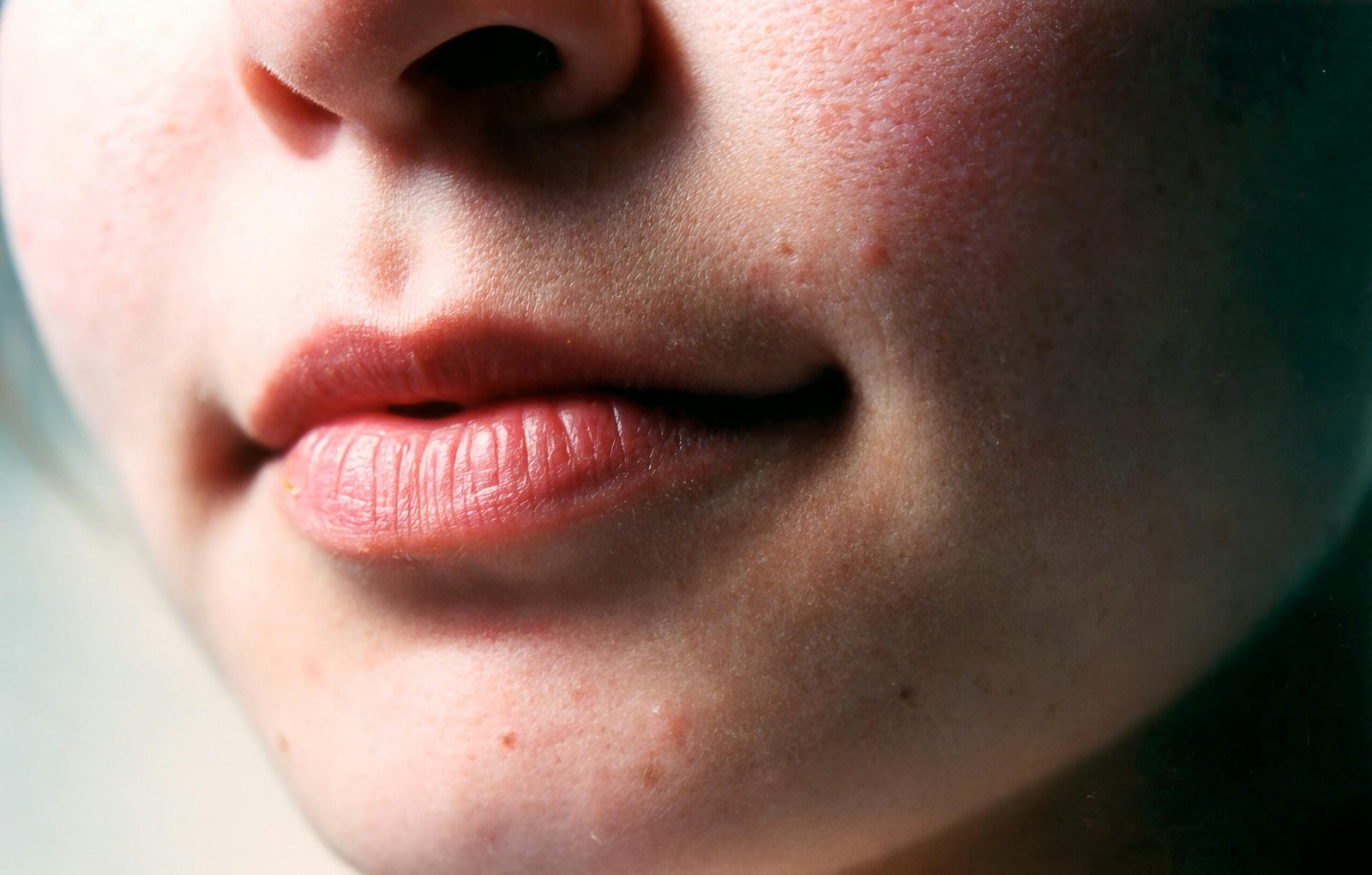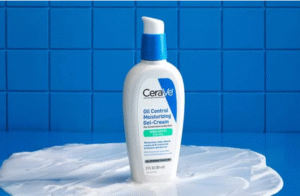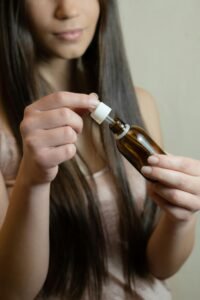Understanding Acne-Prone Skin in 2025
Acne-prone skin is more than just an occasional breakout. It’s a skin type that’s especially vulnerable to clogged pores, inflammation, excess oil production, and hormonal triggers. Whether you’re dealing with blackheads, whiteheads, cystic acne, or texture issues, building a skincare routine for acne-prone skin is essential for long-term clarity and confidence.
In 2025, dermatologists emphasize skin barrier repair, non-comedogenic ingredients, and minimalist routines tailored to your acne triggers. This guide from nimconadar.com will walk you through a full AM and PM acne-focused regimen, ingredient tips, and products to avoid.
Morning Skincare Routine for Acne-Prone Skin
Your morning routine should focus on controlling oil, minimizing inflammation, and protecting your skin from environmental stressors like pollution and UV damage.
Cleanser – Start with a Salicylic Boost
A gentle cleanser that includes salicylic acid (BHA) is ideal for breaking down pore-clogging debris and reducing oil.
Recommended Products:
- CeraVe Acne Foaming Cream Cleanser
- Neutrogena Oil-Free Acne Wash
- La Roche-Posay Effaclar Medicated Gel Cleanser
Product Image Cue: Include a visual of these 3 side by side under the heading.
Keywords: acne cleanser, salicylic acid face wash, morning cleanser for acne-prone skin
Toner – Balancing but Alcohol-Free
Toners for acne-prone skin should hydrate and gently exfoliate without irritating. Avoid anything with alcohol or synthetic fragrance.
Top Picks:
- The Ordinary Glycolic Acid 7% Toning Solution (used every other day)
- Paula’s Choice Pore-Reducing Toner
- COSRX AHA/BHA Clarifying Treatment Toner
Serum – Target the Root of Breakouts
Choose a serum that controls sebum production, soothes inflammation, and unclogs pores.
Best Ingredients for Acne-Prone Skin:
- Niacinamide
- Zinc PCA
- Tea Tree Oil
- Azelaic Acid
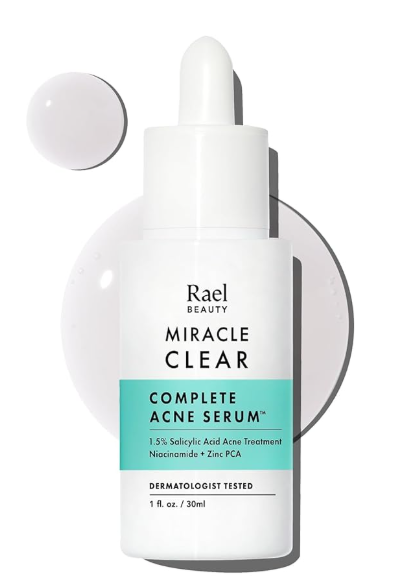
Top Serums:
- The Ordinary Niacinamide 10% + Zinc 1%
- Naturium Niacinamide Serum 12% Plus Zinc
- Paula’s Choice 10% Azelaic Acid Booster
Keywords: acne serum, niacinamide for acne, breakout control serum
Moisturizer – Hydration Without Clogging Pores
Many people with acne-prone skin fear moisturizers, but they are essential for maintaining a healthy barrier and preventing rebound oil production.
Go for:
- Gel-based or oil-free formulas
- Non-comedogenic labels
- Fragrance-free products
Top Products:
- Neutrogena Hydro Boost Gel Cream (Fragrance-Free)
- La Roche-Posay Toleriane Double Repair Moisturizer
- CeraVe AM Facial Moisturizing Lotion
Sunscreen – Mineral is Best
Acne-prone skin can be irritated by chemical sunscreens. Choose mineral sunscreens with zinc oxide for added anti-inflammatory benefits.
Top Picks:
- EltaMD UV Clear Broad-Spectrum SPF 46
- ISNTREE Hyaluronic Acid Watery Sun Gel
- Supergoop! Zincscreen
Keywords: sunscreen for acne-prone skin, SPF for oily skin, acne-friendly sunblock
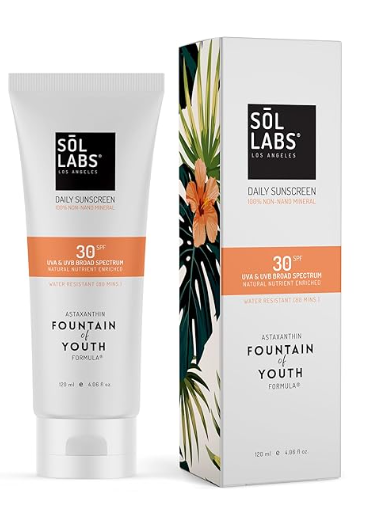
Night Skincare Routine for Acne-Prone Skin
At night, focus on deep cleansing, gentle exfoliation, and treating active breakouts. Your skin regenerates overnight, so it’s a prime time for active ingredients.
Double Cleanse (If You Wore Makeup or Sunscreen)
Use a micellar water or cleansing balm to remove debris before your second cleanse.
First Step Options:
- Garnier Micellar Water for Oily Skin
- Banila Co Clean It Zero Purifying
- Bioderma Sébium H2O
Second Cleanser – Repeat Your AM Acne Cleanser
Using your AM cleanser again at night is ideal to maintain consistency and avoid introducing irritants.
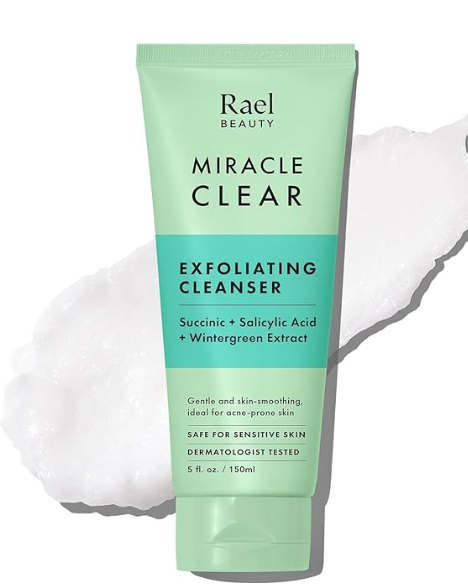
Toner or Essence – Support Exfoliation
Nighttime is when you can gently exfoliate with AHA/BHA or calming ingredients like centella asiatica or panthenol.
Use exfoliants only 2–3 times per week to avoid damaging your barrier.
Treatment Serum or Spot Treatment
Use this step to directly target active acne or prevent future breakouts.
Ingredients that work:
- Retinol (low strength)
- Salicylic acid
- Benzoyl peroxide (2.5–5%)
- Azelaic acid
Top Picks:
- The Inkey List Retinol Serum (for acne-prone skin)
- Paula’s Choice 2% BHA Liquid Exfoliant
- Clean & Clear Persa-Gel 10 (Benzoyl Peroxide)
Night Moisturizer – Calm and Repair
Nighttime moisturizers can be a bit richer but should still be oil-free and non-comedogenic.
Best for PM use:
- CeraVe PM Facial Moisturizing Lotion
- Avene Cleanance Hydra Cream
- Eucerin DermoPurifyer Oil Control
Optional: Acne Patches or Masks
Hydrocolloid patches are great for reducing pimples overnight.
Top Picks:
- COSRX Acne Pimple Master Patch
- Mighty Patch
- ZitSticka Killa Patch
Skincare Routine Chart for Acne-Prone Skin
| Time | Step | Product Type | Example Product |
|---|---|---|---|
| Morning | Cleanser | Salicylic Acid Gel | CeraVe Acne Foaming Cleanser |
| Toner | Alcohol-Free Balancing Toner | Paula’s Choice Pore-Reducing Toner | |
| Serum | Niacinamide or Azelaic Acid | The Ordinary Niacinamide 10% + Zinc 1% | |
| Moisturizer | Oil-Free Gel or Cream | Neutrogena Hydro Boost | |
| Sunscreen | Mineral SPF 30+ | EltaMD UV Clear SPF 46 | |
| Night | Makeup Remover | Micellar Water/Balm | Garnier Micellar Water |
| Cleanser | Salicylic Acid Gel | La Roche-Posay Effaclar Gel | |
| Toner/Essence | AHA/BHA (2–3x/week) | The Ordinary Glycolic Toner | |
| Treatment | Retinol or Spot Cream | Paula’s Choice BHA / Persa-Gel 10 | |
| Moisturizer | Oil-Free Night Cream | CeraVe PM Lotion | |
| Add-On | Pimple Patch (if needed) | COSRX Acne Patch |
Ingredients to Avoid for Acne-Prone Skin
Avoid These at All Costs:
- Coconut oil (comedogenic)
- Alcohol denat. (drying)
- Fragrance and essential oils
- Lanolin, cocoa butter
- High concentrations of pure oils
These can clog pores, trigger breakouts, or irritate acne-prone skin.
Ingredients to Embrace
Acne-Fighting Heroes:
- Salicylic Acid (BHA) – unclogs pores
- Niacinamide – regulates oil and soothes inflammation
- Azelaic Acid – evens tone and fights bacteria
- Zinc – reduces redness and oil
- Retinol (low strength) – cell turnover and texture
Acne-Proofing Habits in 2025
Tips Beyond Skincare Products
- Always wash pillowcases 1–2x per week
- Avoid touching your face during the day
- Don’t over-exfoliate
- Keep your phone screen clean
- Stay hydrated and manage stress
FAQs – Skincare Routine for Acne-Prone Skin
Q1: Should I moisturize if I have oily, acne-prone skin?
Yes! Skipping moisturizer worsens oiliness. Choose oil-free, non-comedogenic creams.
Q2: Can I use retinol for acne?
Yes, but start slowly (2–3 nights a week) with a low concentration.
Q3: How long does it take to see results?
Typically 6–8 weeks. Be patient and consistent.
Q4: Are clay masks good for acne?
Yes, 1x/week to absorb excess oil, but avoid if your skin is irritated or dry.
Final Thoughts: Clear Skin Is a Habit, Not a Quick Fix
Creating the right skincare routine for acne-prone skin isn’t about buying the most expensive products — it’s about choosing gentle, effective formulas that work with your skin type and staying consistent. Avoid the temptation to switch products too quickly or over-exfoliate.
Stick to your routine, treat your skin with kindness, and always patch test new products. For more expert skincare tips and routines tailored to your skin concerns, keep exploring Nimconadar.com.
Skincare Routine for Sensitive Skin in 2025: Calm, Hydrate, and Protect
Introduction: What Makes Skin “Sensitive”?
If you find your face turning red from the slightest weather change, feel a burning sensation when applying products, or break out in rashes or dryness after trying new skincare—your skin is sensitive.
In 2025, sensitive skin is more common than ever. Climate change, air pollution, over-exfoliation, and stress can all weaken your skin’s barrier, leading to reactivity. The solution? A calm, balanced, and effective skincare routine for sensitive skin that protects, soothes, and strengthens your skin’s natural defenses.
At Nimconadar.com, our skincare experts have crafted this complete guide for managing sensitive skin. Whether you’re a beginner or someone looking to fine-tune your routine, this blog post is your go-to resource.
What Causes Sensitive Skin?
Sensitive skin is not a skin type—it’s a skin condition. Any skin type (dry, oily, combination) can become sensitive due to:
- Weakened skin barrier from over-cleansing or harsh actives
- Environmental triggers like UV rays, cold air, and pollution
- Allergic reactions to fragrances, alcohols, or preservatives
- Genetics or underlying conditions like rosacea or eczema
Morning Skincare Routine for Sensitive Skin
A morning routine should be focused on hydration and protection. Gentle is the keyword.
Gentle Cleanser
Avoid foaming or stripping cleansers. Opt for fragrance-free, non-sulfate cleansers that maintain your skin’s pH.
Recommended Products:
- Cetaphil Gentle Skin Cleanser
- Vanicream Gentle Facial Cleanser
- CeraVe Hydrating Facial Cleanser
Ingredients to look for: Glycerin, ceramides, allantoin
Focus Keyword Use:
- Best cleanser for sensitive skin
- Skincare routine for sensitive skin cleanser
- Non-irritating facial wash
Hydrating Toner (Optional)
Toners are optional for sensitive skin, but if you use one, ensure it is alcohol-free and rich in soothing botanicals.
Top Picks:
- Klairs Supple Preparation Unscented Toner
- Avene Gentle Toning Lotion
- La Roche-Posay Soothing Face Mist
Soothing ingredients: Rose water, panthenol, Centella Asiatica
Soothing Serum
Choose a lightweight serum focused on hydration and barrier repair.
Gentle serums for sensitive skin:
- The Ordinary Hyaluronic Acid 2% + B5
- La Roche-Posay Hyalu B5 Serum
- Vichy Minéral 89
Focus Keyword Use:
- Serum for sensitive skin
- Soothing serum skincare routine
- Calming skincare for reactive skin
Moisturizer
Hydration is crucial for reducing sensitivity. Choose non-comedogenic, fragrance-free creams.
Best moisturizers for sensitive skin:
- Vanicream Moisturizing Cream
- CeraVe Moisturizing Cream
- First Aid Beauty Ultra Repair Cream
Look for: Ceramides, hyaluronic acid, niacinamide
Mineral Sunscreen
Sunscreen is non-negotiable—even for sensitive skin. Use mineral-based sunscreens with zinc oxide or titanium dioxide.
Top Picks:
- EltaMD UV Physical SPF 41
- La Roche-Posay Anthelios Mineral SPF 50
- ISDIN Eryfotona Actinica
Focus Keyword Use:
- Sunscreen for sensitive skin
- Best SPF skincare routine
- Daily sun protection for sensitive skin
Night Skincare Routine for Sensitive Skin
Your nighttime routine should focus on repair and calmness. This is when the skin regenerates, so the products must be nourishing and gentle.
Double Cleansing (Optional)
If you wore sunscreen or makeup, start with a micellar water or balm cleanser before your regular cleanser.
Gentle First Cleansers:
- Bioderma Sensibio H2O
- Banila Co Clean It Zero Purifying
- Garnier Micellar Water (Fragrance-Free)
Calming Toner or Essence
This helps your skin absorb serums and moisturizers better while reducing redness.
Ideal ingredients: Chamomile, oat extract, Centella Asiatica
Barrier Repair Serum
At night, sensitive skin benefits from serums that focus on rebuilding the skin barrier.
Try:
- Dr. Jart+ Cicapair Tiger Grass Serum
- Paula’s Choice Calm Repairing Serum
- Etude House SoonJung Cica Repair Serum
Focus Keyword Use:
- Night serum for sensitive skin
- Repairing skincare routine
- Strengthen skin barrier sensitive skin
Thick Night Cream
Night creams for sensitive skin should feel rich but breathable, locking in moisture and healing ingredients.
Recommended Night Creams:
- Avene Tolerance Extreme Emulsion
- Eucerin Redness Relief Night Creme
- CeraVe Skin Renewing Night Cream
Spot Treatments or Masks
If needed, use gentle masks once a week and spot treatments only on irritated areas.
Mask Ingredients to Try:
- Aloe vera
- Honey
- Oatmeal
Avoid clay, peel-off, and exfoliating masks unless specifically for sensitive skin.
Ingredients to Embrace & Avoid in Sensitive Skin
Ingredients to Love:
- Hyaluronic Acid
- Glycerin
- Ceramides
- Niacinamide (low strength)
- Centella Asiatica
- Squalane
- Oat extract
Ingredients to Avoid:
- Fragrance
- Essential oils (lavender, citrus, etc.)
- Alcohol (denatured)
- High-concentration acids
- Harsh physical exfoliants
Focus Keyword Use:
- Safe ingredients for sensitive skin
- Avoid this in sensitive skincare routine
- Gentle skincare tips 2025
Complete Skincare Routine for Sensitive Skin (Quick Chart)
| Step | AM Routine | PM Routine |
|---|---|---|
| Cleanser | Gentle cleanser | Gentle or double cleanser |
| Toner | Optional, hydrating | Calming toner or essence |
| Serum | Hydrating or calming serum | Barrier repair or soothing serum |
| Moisturizer | Lightweight, non-comedogenic | Rich, hydrating cream |
| Sunscreen | Mineral SPF 30+ | Not needed |
| Add-ons | – | Spot treatment or sleeping mask |
Extra Sensitive Skin Care Tips for 2025
- Always patch test new products.
- Choose short ingredient lists.
- Store products in a cool, dry place.
- Keep skincare routines simple and consistent.
- Avoid hot showers and harsh exfoliation.
FAQs – Skincare Routine for Sensitive Skin
Q1: Can I use retinol with sensitive skin?
A: Only if it’s a low-strength or encapsulated formula. Start once a week and layer it over moisturizer.
Q2: Should I exfoliate sensitive skin?
A: Yes, but only 1x/week using mild acids like lactic acid or PHA.
Q3: Is natural skincare better for sensitive skin?
A: Not always. Many essential oils can irritate sensitive skin. Always read labels.
Best Skincare Brands for Sensitive Skin in 2025
- CeraVe
- Vanicream
- Avene
- La Roche-Posay
- Paula’s Choice Calm Line
- Dr. Jart+ Cicapair
Final Thoughts: You Deserve Calm, Balanced Skin
With the right skincare routine for sensitive skin, you can reduce redness, irritation, and flare-ups while improving hydration, texture, and tone. Stick to gentle products, introduce new ones slowly, and always prioritize your skin’s comfort.
Ready to create a peaceful skincare ritual? Bookmark Nimconadar.com for more helpful routines, product guides, and downloadable skincare charts.
Natural Skincare Routine in 2025: A Gentle Path to Glowing Skin
Why Choose a Natural Skincare Routine?
In 2025, more people than ever are making the switch to a natural skincare routine. Driven by concerns over harsh chemicals, hormone disruptors, and synthetic fragrances, skincare lovers now look for gentle, earth-friendly alternatives that nourish the skin without harming the planet.
A natural skincare routine uses ingredients derived from plants, minerals, and other naturally occurring substances. These routines are ideal for sensitive skin, eco-conscious individuals, and anyone who wants to avoid unnecessary additives.
Whether you have dry, oily, acne-prone, or mature skin, building a natural skincare routine can bring out your skin’s natural glow—safely and sustainably.
What Is a Natural Skincare Routine?
A natural skincare routine focuses on using:
- Plant-based oils and extracts
- Non-toxic preservatives
- Fragrance-free or essential-oil-based scents
- Minimal processing (cold-pressed, steam-distilled, etc.)
This means no parabens, sulfates, phthalates, or synthetic dyes.
Natural skincare routines rely on:
- Botanical cleansers
- Hydrosols and herbal toners
- Natural serums like aloe or hyaluronic acid
- Cold-pressed oils and organic moisturizers
- Mineral sunscreens
Morning Natural Skincare Routine (AM)
Your morning routine should focus on hydration and protection using light, breathable, and naturally derived products.
Step 1 – Gentle Natural Cleanser
Start with a non-stripping cleanser that removes oil and dirt without disrupting your skin’s microbiome.
Top Natural Cleansers:
- Mad Hippie Cream Cleanser (with jojoba and green tea)
- True Botanicals Nourishing Cleanser
- Pai Camellia & Rose Gentle Hydrating Cleanser
Ingredients to look for: Aloe vera, chamomile, calendula, green tea
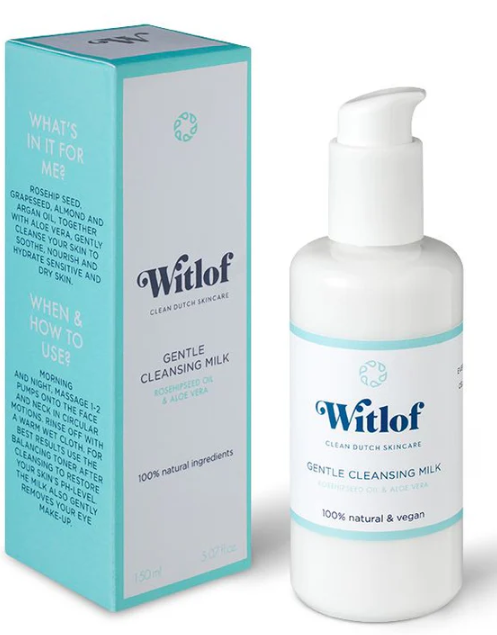
Focus Keyword Use: natural face cleanser, gentle natural skincare, natural skincare routine cleanser
Step 2 – Herbal Toner or Hydrosol
Instead of chemical-based toners, use botanical mists that refresh, soothe, and prep your skin.
Best Natural Toners:
- Herbivore Botanicals Rose Hibiscus Hydrating Mist
- Eminence Organic Stone Crop Hydrating Mist
- Thayers Alcohol-Free Witch Hazel with Rose Petal
🌿 Infographic suggestion: “Benefits of Botanical Hydrosols” with rose, lavender, and aloe visuals
Step 3 – Natural Antioxidant Serum
Boost your morning glow with plant-powered serums rich in antioxidants to defend your skin from pollution and sun damage.
Try:
- 100% Pure Vitamin C Serum
- Odacité Green Tea + Lemongrass Serum
- Trilogy Certified Organic Rosehip Oil
🌞 Best natural antioxidants: Vitamin C, green tea, pomegranate, ferulic acid
Step 4 – Lightweight Moisturizer
Choose a plant-oil-based moisturizer that hydrates deeply without a greasy finish.
Best Natural Moisturizers:
- Dr. Hauschka Rose Day Cream
- Weleda Skin Food Light
- Acure Seriously Soothing Day Cream
Look for: Shea butter, rosehip oil, sunflower seed oil, aloe vera
Step 5 – Natural Sunscreen
Your AM routine must end with SPF. Use mineral sunscreens with zinc oxide or titanium dioxide.
Top Picks:
- Badger Active Mineral Sunscreen SPF 30
- Juice Beauty SPF 30 Oil-Free Moisturizer
- COOLA Mineral Face Matte Tint SPF 30
✅ Label cue: Broad-spectrum + reef-safe + non-nano zinc oxide
Night Natural Skincare Routine (PM)
At night, your natural skincare routine should focus on repairing and replenishing your skin while you rest.
Step 1 – Oil or Balm Cleanse
Use a natural oil cleanser or balm to gently remove makeup, sunscreen, and pollution.
Best Natural First Cleansers:
- One Love Organics Vitamin B Cleansing Oil
- Farmacy Green Clean Balm
- Biossance Squalane + Antioxidant Cleansing Oil
Key oils: Jojoba, sunflower, hempseed, grapeseed (all non-comedogenic)
Step 2 – Water-Based Cleanser
Follow up with a mild water-based natural cleanser to remove remaining residue.
Example: Acure Brightening Cleansing Gel with pomegranate and calendula
Step 3 – Night Serum or Facial Oil
Nourish your skin with cold-pressed oils or herbal-infused serums.
Best Natural Night Oils:
- Pai Rosehip Bioregenerate Oil
- Indie Lee Squalane Facial Oil
- True Botanicals Pure Radiance Oil
🌙 Use 3–4 drops pressed into damp skin.
Step 4 – Natural Night Cream or Balm
Seal in hydration with a rich, nourishing cream or balm made with natural butters and oils.
Recommended:
- Weleda Skin Food Original Ultra-Rich Cream
- Naturopathica Calendula Essential Hydrating Cream
- Earth Harbor Nymph Nectar Superfruit Balm
Natural Skincare Routine by Skin Type
For Dry Skin:
- Coconut oil cleanser
- Rose water toner
- Hyaluronic acid serum
- Shea butter moisturizer
- Nourishing face oil (e.g., argan)
For Oily/Acne-Prone Skin:
- Gel cleanser with tea tree
- Witch hazel + aloe toner
- Niacinamide or green tea serum
- Lightweight moisturizer with jojoba
- Non-comedogenic oils (e.g., squalane)
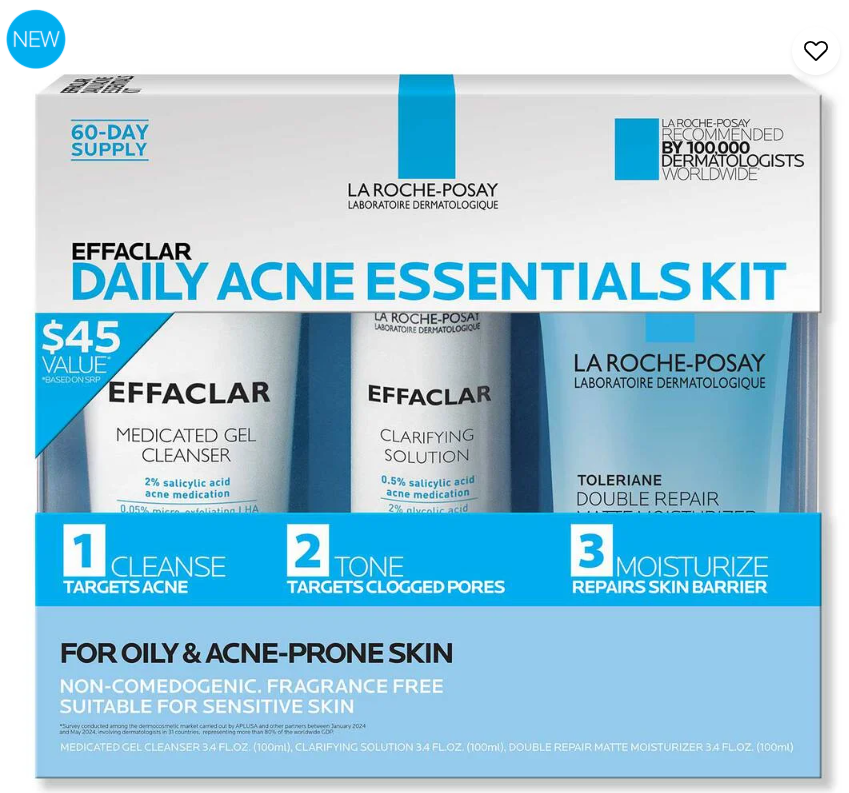
For Sensitive Skin:
- Chamomile or oat-based cleanser
- Lavender or calendula mist
- Centella asiatica serum
- Aloe-rich cream
- Minimal essential oils
Ingredients to Embrace and Avoid
Embrace:
✅ Aloe vera
✅ Jojoba oil
✅ Rosehip oil
✅ Green tea
✅ Vitamin C from natural sources
✅ Calendula
✅ Witch hazel (alcohol-free)
Avoid:
❌ Synthetic fragrance
❌ Alcohol denat
❌ Parabens
❌ Sulfates (SLS/SLES)
❌ Chemical sunscreens
❌ Mineral oil or petroleum
📊 Infographic cue: Ingredient Do’s and Don’ts for a Natural Skincare Routine
Tips to Maximize Your Natural Skincare Routine
Natural Skincare Routine Chart
| Step | Morning Routine | Night Routine |
|---|---|---|
| Cleanser | Herbal or aloe-based gel cleanser | Oil or balm followed by gentle cleanser |
| Toner | Hydrosol or herbal mist | Lavender or chamomile water |
| Serum | Vitamin C, green tea, or rosehip | Squalane, rosehip oil, or bakuchiol |
| Moisturizer | Aloe-rich, non-comedogenic cream | Shea butter or balm-based night cream |
| SPF | Zinc oxide mineral sunscreen | — |
❓ H2: FAQs – Natural Skincare Routine
Q: Is a natural skincare routine effective for acne?
Yes, as long as you choose non-comedogenic oils and acne-fighting herbs like tea tree and green tea.
Q: Can I make DIY natural skincare at home?
You can! But always test for allergies and avoid high-risk essential oils.
Q: Do I need sunscreen if I use only natural products?
Absolutely. Mineral SPF is essential, even with the cleanest skincare.
Final Thoughts: Embrace the Power of Nature
A natural skincare routine isn’t about trends—it’s about reconnecting with your skin’s biology. In 2025, more people are proving that gentle, plant-based care leads to better results than harsh, overcomplicated routines.
Choose wisely. Keep it simple. And let your skin breathe, heal, and glow—naturally.

